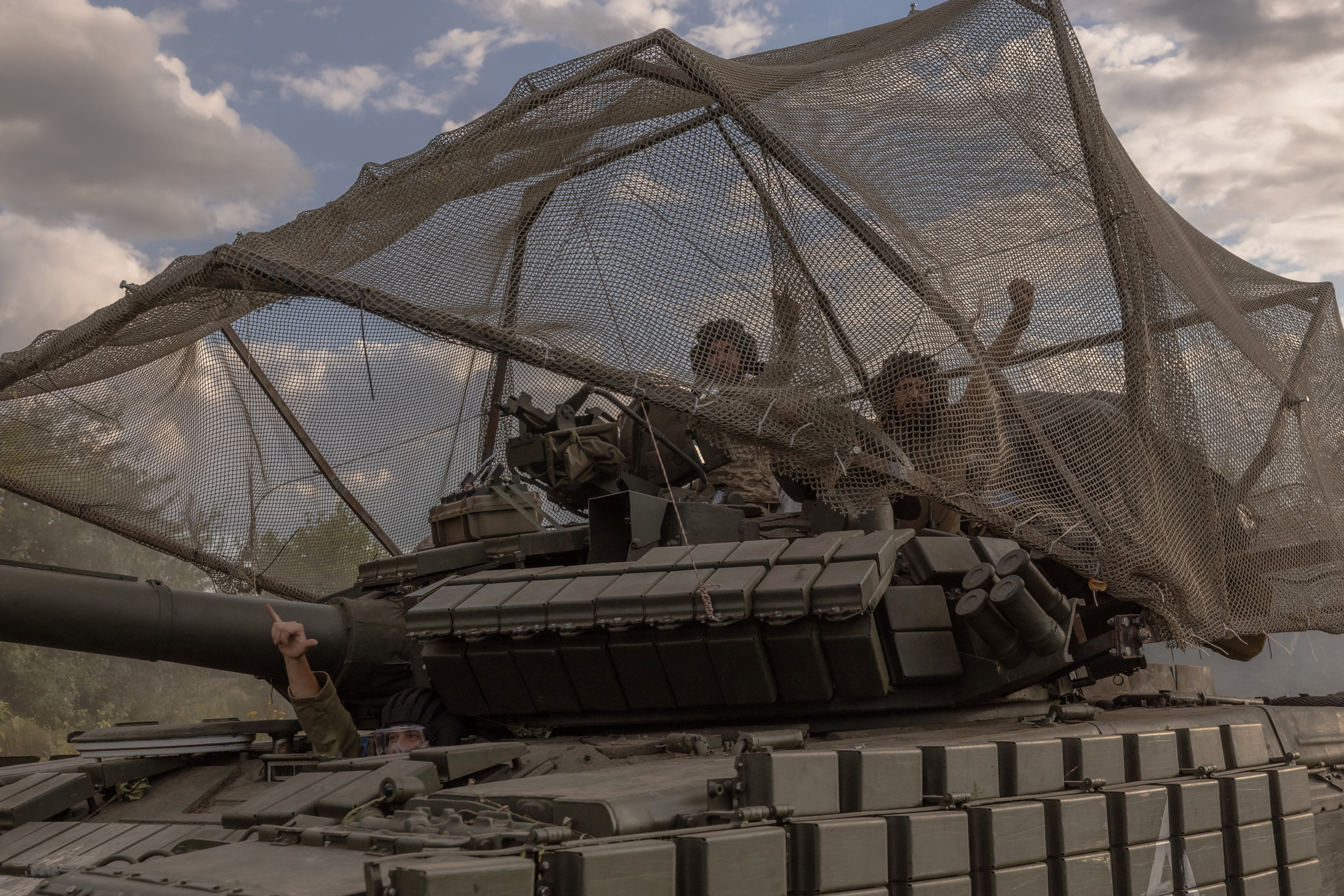In response to a recent surprise attack by Ukrainian forces into Russia’s Kursk region, China is stepping into the fray, urging all parties to adhere to its “three principles” aimed at reducing tensions: no battlefield expansions, no escalation of fighting, and no further provocation. A Chinese foreign ministry spokesperson emphasized the need for constructive dialogue within the international community to facilitate a political resolution to the ongoing crisis.
These principles were initially presented by Chinese Foreign Minister Wang Yi shortly after Russia invaded Ukraine in February 2022. Since launching their offensive six days ago, Ukrainian troops have reportedly advanced up to 18 miles into Russian territory, taking control of 28 settlements, according to the Russian Ministry of Defense and Kursk Governor Alexei Smirnov.

Roman Pilipey/AFP via Getty Images
While China aims to present itself as a neutral party in the conflict, it has not explicitly condemned Russia’s actions and actively censors dissent concerning the war on its social media platforms. Trade ties, particularly involving natural gas and oil, have been mutually beneficial, yet U.S. sanctions are pushing Chinese banks to be wary of engaging in transactions with Russian entities.
During a July meeting in Beijing, Ukraine’s Foreign Minister Dmytro Kuleba expressed concerns that Russia was not prepared for genuine negotiations. Following Ukraine’s advances, Russian forces have had to patch together a defense using conscripts and units from less contested areas, which has reportedly led to disarray in their operations, according to the Institute for the Study of War.
Kursk Governor Smirnov stated that about 121,000 people have been evacuated from the region, with thousands more expected to leave amidst escalating tensions. Additionally, neighboring Belgorod has seen the evacuation of around 11,000 residents due to ongoing hostilities.
To bolster their efforts against Russian forces, Ukrainian President Volodymyr Zelensky called for increased pressure on the aggressor during a recent address, marking his first public acknowledgment of the offensive. Meanwhile, President Vladimir Putin sought to downplay the situation, describing it as “another large-scale provocation” during a recent Security Council meeting. Analysts note that the presence of Ukrainian troops on Russian soil challenges Putin’s narrative of stability and power, potentially threatening his hold on authority amidst growing discontent and fears of instability within Russia.
